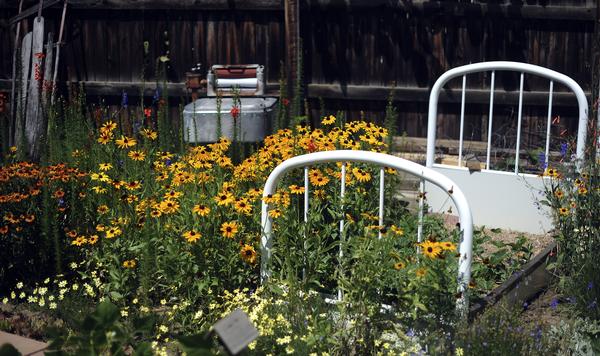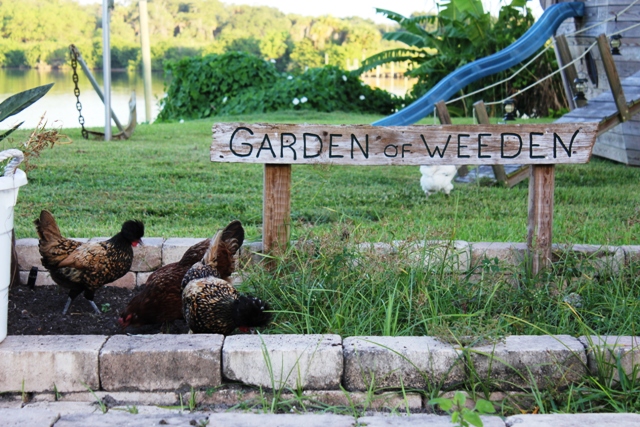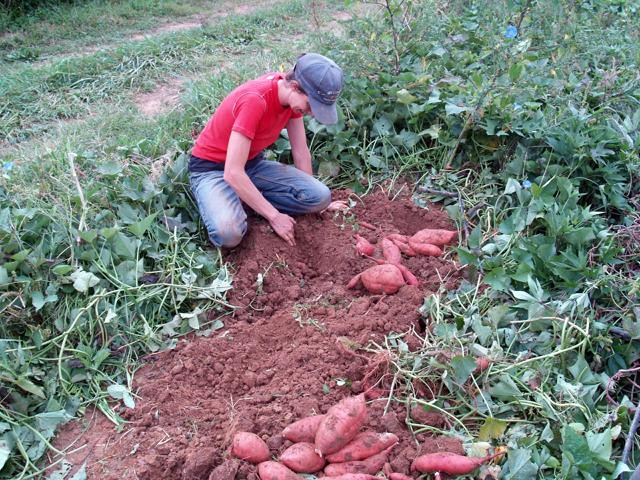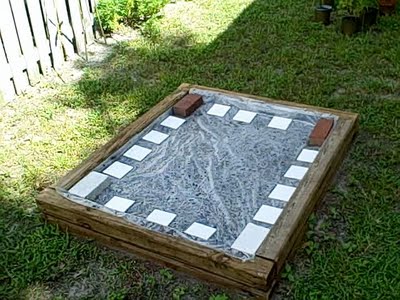Voulez-Vous Couchez avec moi dans le Jardin? (or reasons to cover crop)
Now now! Get your mind back into the garden! While all y’all norther gardeners are gearing up for the big season, in the deep south exhausted gardeners are looking forward to a break! And chance to bed down with whoever they like, once their gardens are put to bed that is!
Going to bed with black eyed susan (photo credit)
As the heat and humidity get just about to the levels I love and everyone else despises, the gardens start to look a little more than stressed, with the exception of the hot peppers, eggplants, and okra of course. This is the time to put those gardens to bed and go to the beach! Now Those of us that love the heat keep on trucking, but there is no shame in taking the summer off. Lot’s of farmers do it. That’s what school trained us to do, so why not? I definitely am going to take off a bit this summer, you’ll see…
Chickens are great summer weeders and fertilizers if you have them! (photo credit)
So while you’re off jumping waves and eating sandy watermelon, is your garden just baking in the sun and filing with weeds? I hope not! Did you cover crop?
Also called putting the garden to bed, cover cropping is a valuable method for helping build soil vitality while also giving it a rest. Try planting a bed full of cowpea and letting it run wild to build up nitrogen in the soil. Then, a little before the weather cools, dig in in and let it compost, or, pull it all and put it into your compost pile. Feel free to take the peas to eat pre-composting too!
Cowpea (photo credit)
Do you have a shady area you would like to cover crop? Plant it with sweet potatoes. They like the heat, do well in shade, and will give you plenty of edible leaves to enjoy and potatoes to make pies from in the fall, all while helping to keep weeds down.
Sweet potato harvest (photo credit)
If nematodes are giving you trouble, you could put your garden to bed by solarizing it. Basically covering it with plastic for the summer to cook the nematodes out. Some people don’t recommend this method as it can hurt beneficial organisms as well, and personally I haven’t found huge luck with it, but maybe it is just what your garden needs.
Solarizing the soil is pretty easy. (photo credit)
Reasons Cornell University says to cover crop:
Suppress weeds
protect soil from rain runoff
improve soil stability
reduce surface crusting
add organic matter to soil
fix nitrogen
scavenge soil nitrogen
suppress soil pests and diseases
Convinced? If for no other reason, put that garden to bed and tuck it in with a cover crop so you don’t have to come to school in the summer and water your school garden! Take a vacation! You deserve it and your soil does too!
What do you do with your school garden in summer?
Cover crop, schedule student summer garden tenders, just let it go?
Share your methods in the comments below!
Seeds to Sprout:
Check out this Wonder Wednesday #9 lesson plan on cover cropping your school garden
Here is a step by step guide to cover cropping from Organic Gardening
Here’s a Cornell University fact sheet on the benefits of cover cropping
Learn more about solarizing your soil from Organic Gardening
Want help coordinating and establishing a summer school garden maintenance plan? I can help! Schedule a consultation!





